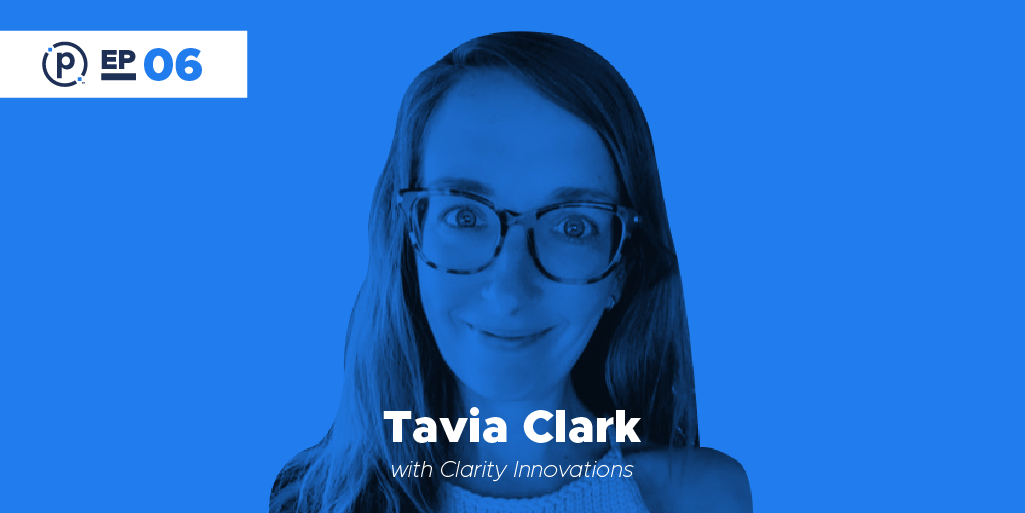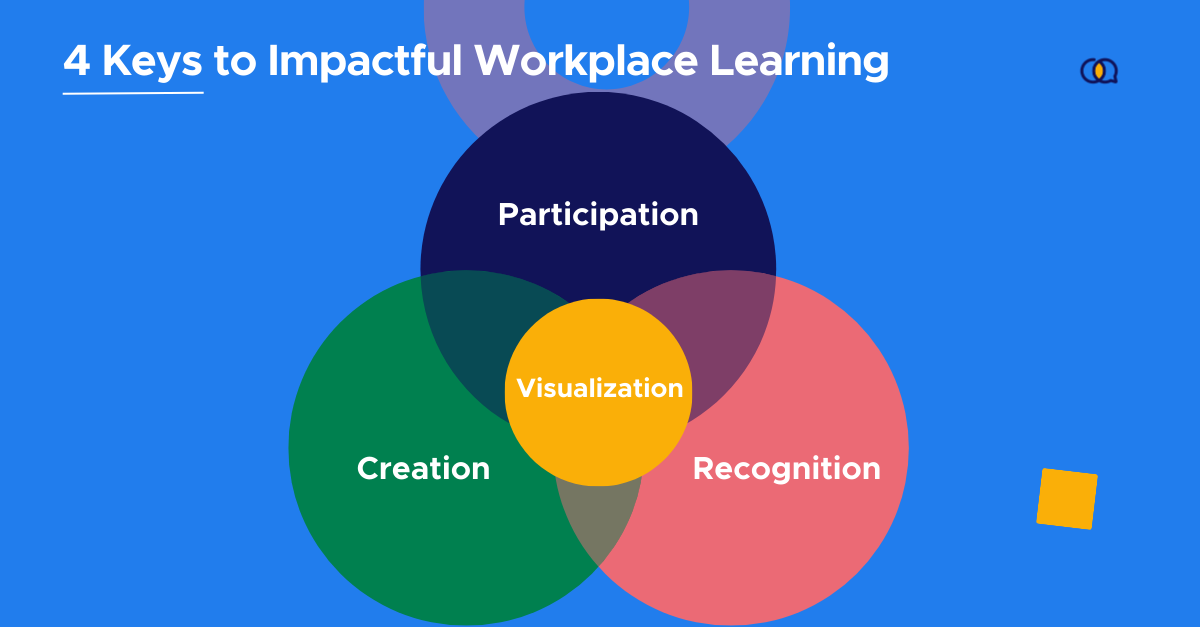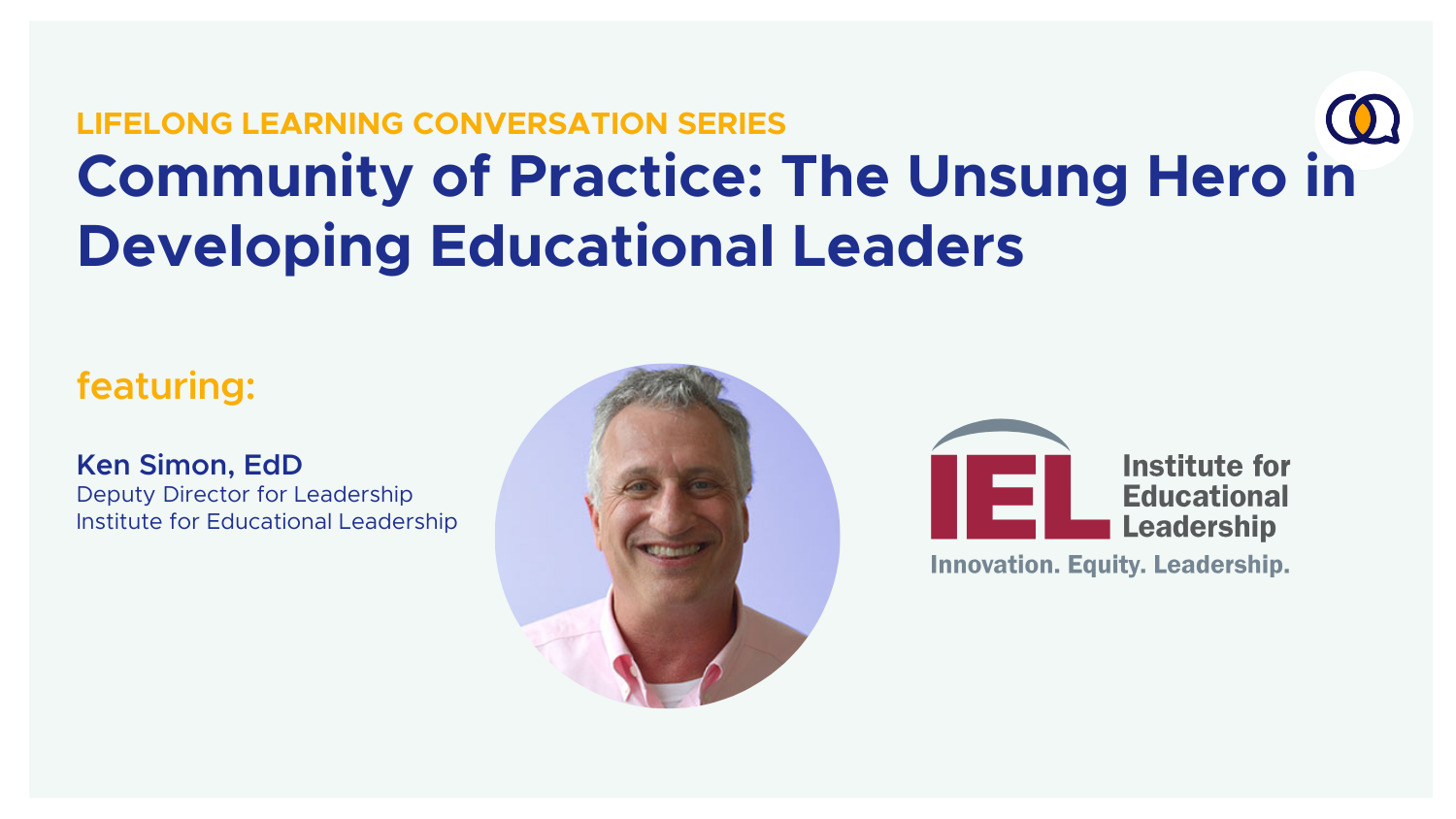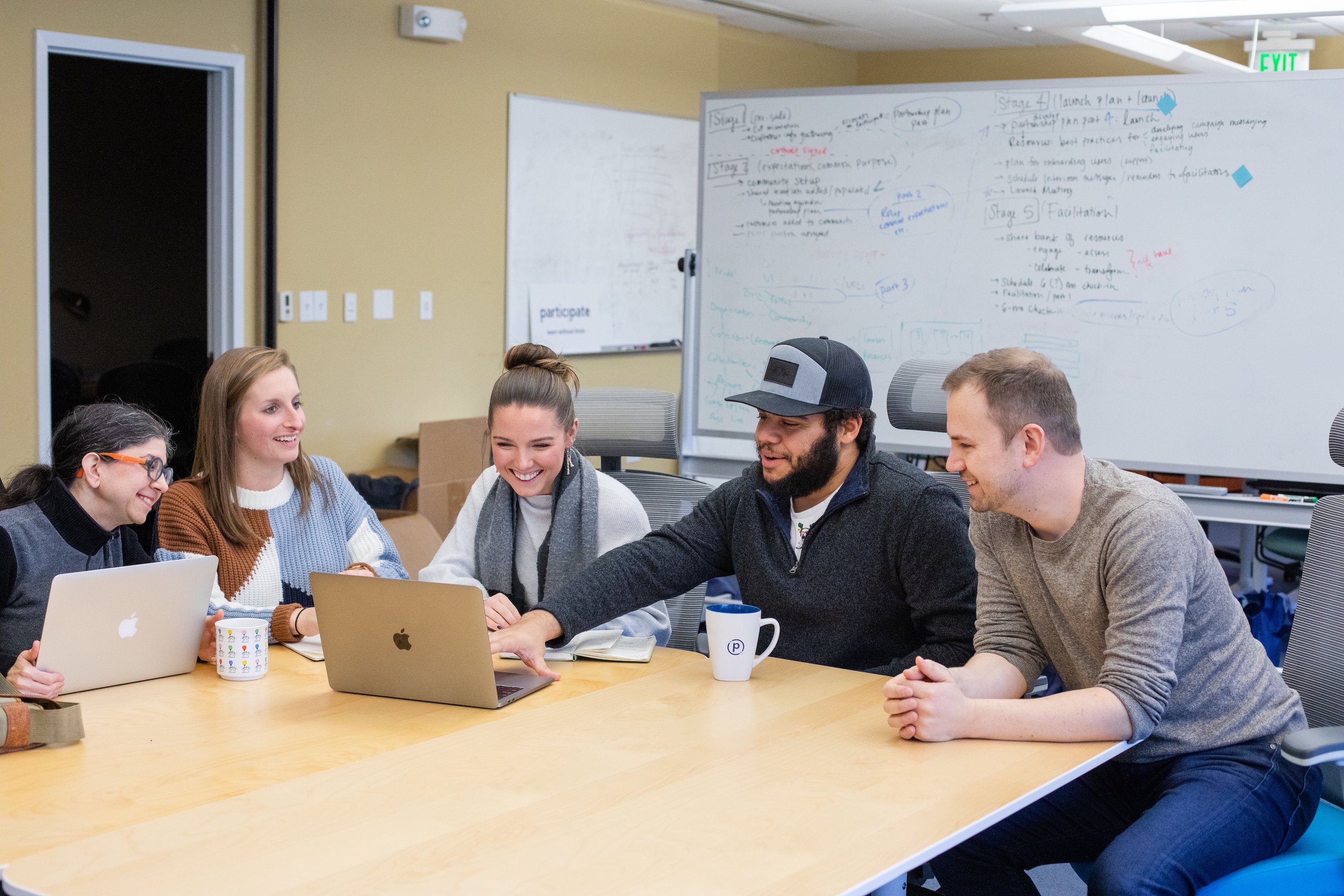Creating agency for all learners

In the sixth episode of the Participate podcast, Mike Washburn and Dr. Julie Keane talked with Tavia Clark, a Learning Experience Designer for Clarity Innovations. Clark works with a team to create content that leads to meaningful learning experiences for students and educators.
From teacher to coach to learning experience designer
Clark began her path as a high school English teacher in her hometown in northeastern North Carolina. After five years of teaching, she decided that she would move into the library, a career move that she says catapulted her love of learning experience design and professional learning.
During this period, Clark gained the opportunity to participate in an instructional coaching program, the North Carolina Digital Leaders Coaching Network (NCDLCN), supported by The Friday Institute at North Carolina State University. Later, she joined The Friday Institute as a Digital Innovation Coach, where she would become the NCDLCN program facilitator.
As a Digital Innovation Coach, Clark coached many K-12 educators, worked on digital innovation programs and rolled out one-to-one technology programs. It was through her work that she saw the connection between coaching and learning experience design and how they support and lean on each other. She would later leave The Friday Institute to serve as a Teacher on Special Assignment (TOSA) for eight months, where she helped educators integrate technology into learning experiences. After serving as a TOSA, she landed at Clarity Innovations, Inc., where she works now.
Making effective learning experiences for educators
When it comes to building effective learning experiences within professional development, Clark believes in the “teaching others how to fish” principle. More specifically, her learning experiences are content specific, and the content is heavily influenced by the goals that educators want to achieve. Participants need to visualize and actualize how their learning is going to affect students and their practice.
Another aspect she focuses on is including hands-on time within her learning experience sessions. While implementing hands-on experiences are difficult through virtual formats, she encourages other designers to make it as simple as working through a crucial/coaching conversation, which educators can take and use with their students. Additionally, Clark emphasizes the importance of modeling and acknowledging instructional practice.
Now, Clark strives to make sure that her learning experiences can be reflected in the classroom with students. During professional development sessions with educators, she sees rich conversations emerge when designers and educators break down the models they create so instructors can understand why these approaches were taken.
Working with teachers and expanding the process of adult learning
The conversation transitions to hearing Clark’s thoughts on expanding the process of enjoyment within adult learning, a subject often left unexplored. Clark explains that within her line of work, she uses the same fundamental approaches that she uses for teachers. She aims for her participants to be able to discuss with each other, internally reflect and effectively receive feedback. When there is a protocol or strategy developed, she wants her colleagues to be able to utilize it in their line of work with their clients.
In Clark’s words, “Learning is learning.” Adults don’t learn much differently than kids, and while adults do tend to seek the practicability of what they are learning, adults do have the desire to explore and expand their knowledge. Clark believes that by creating learning experiences where teachers feel like a student, educators would build confidence and learn that creating engaging learning experiences that are “fun” are encouraged.
Clark says the process of professional development has always been focused on engagement. However, engagement has been focused on increasing test scores, and not truly on the enjoyment of learning. Clark points out an important question: if educational designers don’t focus on making learning enjoyable for adult educators, how do we expect them to make it enjoyable in the classroom?
Social platforms and learning experience design
Toward the end of the podcast, Clark speaks on how social media platforms and Communities of Practice (CoPs) can transform the education field. Clark says she personally loves platforms like Twitter, and while it has taken a lot of time, follower tweaking and community honing to make it an enjoyable experience in her field, she does credit the platform for allowing her to stay engaged and connected to her educator community.
However, the more Clark thinks about CoPs, the more she is convinced that they will be the true platforms to transform professional development. She states that different versions of CoPs, such as organizational, virtual or cross-organizational, build communities together and are much more effective than just social media platforms.
“Twitter is a catalyst...it’s a jumping off point...it’s a connection point. But the actual Community of Practice offers me agency. It offers me a safe space to learn and grow and share,” said Clark.
A CoP has the ability to offer accountability that does not feel evaluative based on performance. She finds this is valuable because it allows participants in the community to take risks and share successes and failures in their own paths within learning experience design.
The future of learning experience design
Keane and Washburn close the conversation with Clark’s hope for the future of learning design. She hopes that educational practitioners acknowledge that facilitators or designers intentions are not to be realized. She wants practitioners within learning experience design to understand that impact occurs within the learning experiences.
Clark also hopes that professional development facilitators within schools, districts and private industry begin to listen more to not only what educators need, but also what they want in order to make the learning experiences more enjoyable and effective.
Click below to learn more about our approach to learning experience design and how a Community of Practice can scale your organization's impact and lead to shared knowledge creation.


